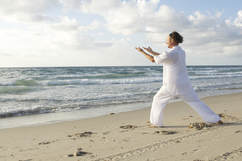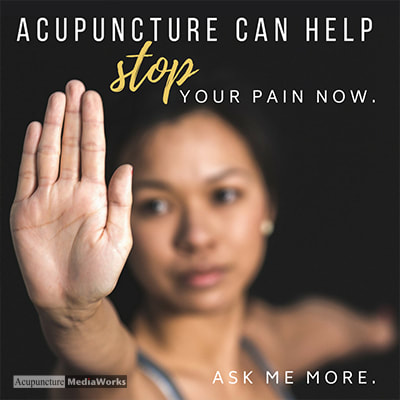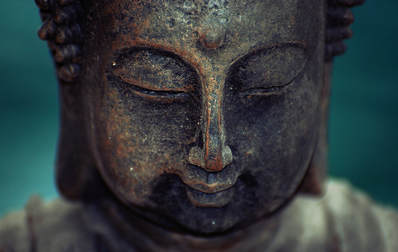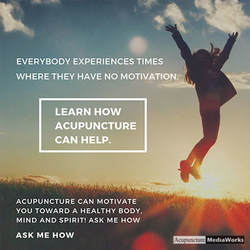 A study published by BMC Complementary and Alternative Medicine looked at the effects of acupuncture in the treatment of depression. For the study, rats were exposed to three weeks of chronic unpredictable mild stress, which put them into a state of depression. Once depression had set in, the rats were then treated using two acupuncture points for 10-minute sessions. What was discovered was that depression-like behaviors were decreased using this treatment method. Therefore, it was determined by this particular study, that acupuncture indeed has positive effects on the symptoms of depression and can be used as a means to treat the disease. Depression is defined as a mental disorder characterized by feelings of dejection and severe despondency. Worldwide, nearly 350 million people suffer from depression and nearly 16 million of those are in the United States alone. Statistics show women tend to be more likely to experience depression and young adults between the ages of 18 to 22 are also at higher risk. Symptoms of depression include extreme irritability over minor issues, anxiety, restlessness, irrational anger, lack of interest in everyday activities, thoughts of death, insomnia, severe fatigue, weight gain/loss, difficulty concentrating and unexplained aches and pains. When these symptoms occur for more than a few weeks, depression may be the reason behind them. As shown in the aforementioned study, Traditional Chinese Medicine (TCM) is very effective in treating depression, not only short-term, but also long-term. Modern medicine usually treats depression with antidepressants and psychotherapy regardless of the presenting symptoms. In contrast, TCM diagnoses each patient on an individual basis and treats the specific symptoms, while also addressing the root of the illness. Acupuncture and Traditional Chinese Medicine can help alleviate symptoms of depression while also attacking the root cause(s), thus bringing the body and mind back into balance. The body and mind are inseparable and should be treated as a whole, which is the approach used by acupuncturists. When we experience emotional challenges and become upset, our physical body may become affected as well. Then a vicious cycle begins because the emotions are greatly impacted by what we can and cannot do physically. The theory behind treating depression using TCM, all revolves around the concept of Qi (pronounced “chee”). Qi is considered the vital energy that flows through the body and animates everything. When Qi is blocked or stagnant, illness can take root, either physically or mentally. Qi flows throughout the body on energetic pathways or meridians. Each energetic meridian is associated with an organ and each organ has its own emotion. For example, the emotion of the liver meridian is anger. When Qi is blocked and liver Qi stagnation occurs, anger can then manifest. From the same standpoint, if a person is excessively angry, the flow of Qi can be blocked creating stagnation. Acupuncture releases endorphins and activates natural pain killers. By doing so, it improves the flow of Qi throughout the body while eliminating blockages and bringing balance to the mind and body. Endorphins counter the symptoms of depression and allow the person to resume a normal life. If you are suffering from depression and are looking for a natural way of dealing with it, contacting a licensed acupuncturist might be exactly what you need. A local acupuncturist can help you navigate the waters of depression without the harmful side-effects of pharmaceuticals, while helping you get back to a happier life. SOURCE: https://bmccomplementalternmed.biomedcentral.com/articles/10.1186/s12906-016-1356-x  Everybody experiences times where they have no motivation. Lack of motivation can be caused by many things: the weather, depression, nutritional deficiencies, rejection and even not exercising. For many, this seems contradictory. If I have no motivation, how am I supposed to go exercise? Well, it all comes down to choices and doing what is best for your body. Lacking motivation can be detrimental to your health. Even though everybody knows they should be exercising, eating right and getting proper sleep, many of us choose not to. This becomes a bad habit that can actually develop into depression, fatigue, insomnia and even nutritional deficiencies that cause worse physical problems. We tell ourselves we don’t have time or we have no motivation or willpower. These are just stories we tell ourselves. Everybody has time to care for themselves. It’s just a choice we have to make. So here are some ways to help us wake up, get motivated and get moving. 1. Acupuncture - Acupuncture can help put the pep in your step when it comes to motivation. In Traditional Chinese Medicine (TCM), lack of motivation is considered a sort of blockage along the energetic pathways that run throughout the body. Most commonly, this affects the gallbladder and liver pathways. Over time, this lack of motivation frequently develops into depression. When the body is depressed, nothing seems possible. But there are underlying causes to depression that begin with lack of motivation. 2. Feng Shui – This ancient art is used to energetically balance the home through the placement of the furnishings inside. The bedroom is particularly important because we spend so much time there. Feng Shui tells us your bed should be placed where it allows you to see the door without being in the direct path of the door opening. This allows for a sense of security, which can lead to more restful sleep. 3. Gratitude – Being thankful for everything you have in your life really does make a difference. Instead of seeing the day ahead of you as a burden and worrying about everything you have to do, be thankful you woke up again. This will shift how you look at things throughout the day and the rest of your life. 4. Exercise – Whether you’re a gym rat or not, exercise is vitally important. Going for a walk or a jog first thing in the morning can be refreshing and get the blood pumping. Studies show regular exercise in the morning can actually lead to more energy the next day. 5. Meditate/Pray – Meditation and prayer allows the body to relax and the mind to calm down. Using this tool shortly before going to bed can be very beneficial. And as we all know, when the mind is quiet, the body relaxes more and we get better, more restful sleep, which gives us more energy and motivation to tackle the next day. Try incorporating one or all of these practices into your life and see how much it affects you. And remember, studies show it takes 21 to 30 days of doing something consistently for it to become a habit. Are you up for the challenge?  A study published in the Annals of Internal Medicine examined how acupuncture can be used to treat low back pain. The researchers looked at multiple trials to determine that acupuncture shows great promise in relieving chronic low back pain. The trials were inconclusive about acupuncture for acute low back pain. Since chronic low back pain is more common, it makes sense the majority of the trials scrutinized found more evidence to support acupuncture usage for this condition. Pain affects everybody at some point in their lives. It may be either acute or chronic. But regardless of the type of pain, it can be debilitating. According to the National Center for Health Statistics, nearly 100 million Americans have suffered from pain that lasts more than 24 hours and millions more suffer from acute pain. Chronic pain is the most common cause of long-term disability in the United States also, which ultimately affects not only the pain sufferer, but also those around him or her. Many people go to see their regular doctor when they have pain. Many more go to the emergency room. But the treatments received don’t always provide relief. Everything from pain pills to surgery may be suggested to help pain sufferers. And because of over-prescription of pain medications, there is now an epidemic in the United States. Opioids, one class of prescription painkillers, has turned into a legitimate killer, causing more and more people to overdose and die. According to the National Institute on Drug Abuse, it is estimated that nearly 2.1 million people in the U.S. are suffering from substance abuse disorders directly related to opioid pain relievers. This is where acupuncture comes in. Acupuncture is part of a nearly 3,000 year old medical system known as Traditional Chinese Medicine. Acupuncture uses hair-thin needles to stimulate specific pressure points on the body. By invigorating these points, the brain is triggered to release endorphins, which are natural painkillers. The energy within the body is also moved and adjusted. According to TCM medical theory, when the energy is blocked or weak, then pain and illness can attack the body. One of the advantages of utilizing acupuncture to treat pain is the acupuncturist doesn’t need to diagnose the cause of the pain before treating it. Since acupuncture has no real adverse side effects when performed by a qualified and professionally licensed practitioner, pain relief can begin the very first time a patient is treated. The treatments are very customizable because this medicine is not a “one size fits all” type of solution. This means that as the pain shifts and changes, the patient will receive customized treatments that not only address the pain and inflammation, but they also work on resolving the root of the problem. Most patients who are dealing with pain also have added stress, insomnia and depression or anxiety. Acupuncture is great at treating all of these conditions. So the patient gets more than just pain relief. Acupuncture is so effective at treating and relieving pain now showing up in hospitals and emergency rooms. In fact, Abbott Northwestern Hospital in Minneapolis, Minnesota is now successfully using acupuncture in its emergency room to treat conditions ranging from car accident injuries to kidney stones. Their initial results show pain scores are just as low with acupuncture as they are with those given analgesic painkillers. Another positive action regarding the utilization of acupuncture came just recently. The Food and Drug Administration released proposed changes that plan to educate health care providers about treating pain. The new guidelines recommend doctors get information about acupuncture and suggest it to their patients before prescribing opioids. With these kinds of recommendations and testimonials, it is hard to believe only about 10 percent of Americans have ever tried acupuncture. But that statistic is slowly changing as more and more people are seeking natural and alternative methods of dealing with pain and disease. Why not check it out for yourself? Contact me to find out more information. SOURCE: http://annals.org/aim/article-abstract/718336/meta-analysis-acupuncture-low-back-pain They finally put it all in one place for me. THANK YOU so much for all your support over the years, so honored to be of service! #humbled
 Traditional Chinese Medicine looks at things differently and while it may be a little confusing, there is usually some common ground that can be found upon examination and explanation. One such area is the idea of the mind. The mind in Traditional Chinese Medicine is commonly referred to as the shen. In Chinese medicine, the shen is interpreted as the spirit or consciousness. The shen lives in the heart organ system and it is considered to be one of the vital substances of the body. The shen is said to preside over the activities that take place in the spiritual and mental planes. So, for many TCM practitioners, shen is actually referring to the mind. And if we look at serious mental illnesses such as schizophrenia and bipolar disorders, the shen or mind is where the dysfunction actually appears. Chinese medicine refers to this as being “misted” or “clouded”. However, it should be noted not all practitioners agree the mind and the consciousness are the same thing. This is because many of our mental processes are considered subconscious. As stated, the theory is that the shen lives in the heart. So if a person has a disturbed shen, there may be anxiety, stress, difficulty breathing, heart palpitations and more. Many people with a disturbed shen experience insomnia. Chronic insomnia can then lead to actual mental illness. If we follow this logic, we can see how the shen (in Chinese medicine) and the mind (in Western psychology) are related and somewhat interchangeable. When we approach the shen from the standpoint of Western psychology, it is hard to deny there is a lot of shen disturbance in the modern world. This can be anything from anxiety, depression and addiction to the aforementioned serious mental illnesses like schizophrenia. A person with balanced shen will present as healthy, harmonious and level-headed. A person with disturbed shen will present with a lack of spirit or emotion, illogical reasoning and symptoms of mental illness. Ultimately, we want to have a balanced shen. This means we may have emotional responses to external stimuli or internally generated thoughts or feelings and we are capable of controlling and recovering from these situations without much incident. Somebody who has a disturbed shen, would not know how or be able to deal with a similar situation and may act out irrationally while drawing attention to themselves. An example would be when a person with a balanced shen becomes angry or cries for some reason. They tend to feel relief after the emotion has passed. While somebody with a disturbed shen may continue the irrational behavior for quite some time without ever feeling that relief and they might need intervention to return to a somewhat balanced state. Maintaining a healthy shen also means that we maintain a healthy body. A strong shen is fundamental to good health. When the shen is weak, the body will eventually fail. To keep the shen healthy we should focus on maintaining a positive mindset, getting enough rest, seeking peace, connecting with nature, meditating and showing compassion. This means we ultimately need to avoid overwork, chronic stress, an erratic daily schedule, lack of sleep and volatile emotions such as anger, hatred and resentment. This may seem pretty logical, but based on the amount of shen disturbance/mental illness in the world, it is clear we have lost our way to some degree. The good news is the cumulative shen of the planet can be changed over time and we can all have a hand in making that change.  A study published by the Journal of Evidence-Based Complementary and Alternative Medicine looked at the holistic effects of acupuncture treatments. The study looked at how acupuncture treatments were conducted and evaluated. One of the areas this study looked at is how acupuncture influences the function of the brain. By using functional MRI imaging, the researchers were able to see certain areas of the brain were stimulated during the acupuncture treatments. The anterior insula and striatum, areas involved in motivation processing, were very responsive to the treatments. The study confirmed acupuncture on specific points can activate motivation centers in the brain, thus leading to increased physical motivation in the participants. Everybody experiences times where they have no motivation. Lack of motivation can be caused by many things: weather, depression, nutritional deficiencies, rejection and even not exercising. Lacking motivation can be detrimental to your health. Even though everybody knows they should be exercising and eating right and getting proper sleep, many of us choose not to. This becomes a bad habit that can actually develop into depression, fatigue, insomnia and even nutritional deficiencies that can cause even worse physical problems. We tell ourselves we don’t have time or we have no motivation or willpower. These are just stories we tell ourselves. EVERYBODY has time to care for themselves. It’s just a choice we have to make. Acupuncture can help put the pep back in your step when it comes to motivation. In Traditional Chinese Medicine (TCM), lack of motivation is considered some sort of blockage along the energetic pathways that run throughout the body. Most commonly, this affects the gallbladder and liver pathways. Over time, this lack of motivation frequently develops into depression. When the body is depressed, nothing seems possible. But the fact of the matter is that, there are underlying causes to depression that begin with the lack of motivation. The reason TCM works so well at addressing and correcting motivation problems is because it addresses the body holistically. When people go to their doctor and tell them that they have no motivation, they are frequently prescribed antidepressants. But the problem with antidepressants is they don’t address the underlying causes of the issue. TCM looks at everything: the body, the mind, the environment and the emotions. This allows for treatments to be customized to the needs of the patient instead of a one size fits all approach. As mentioned, the liver and gallbladder pathways are most commonly associated with lack of motivation. When either or both of these pathways become blocked, motivation dissipates and people become depressed. One of the first things that happens is emotions become involved and send signals to the digestive tract. This is why many times, people who lack motivation or who have developed depression have no appetite. Energy comes from eating healthy foods. But when we have no appetite, we tend to crave things like sweets and carbohydrates because they give us the “emotional high” that temporarily sedates the depression and lack of motivation. But this quickly goes away and we end up right back where we started. The gallbladder pathway is important when motivation is lost. The gallbladder pathway is associated with courage and decisiveness. Lack of motivation causes most people to not be decisive. The inability to decide or act or the lack of motivation to act is associated with a weakness of the gallbladder system. Regular acupuncture treatments can help with this issue, as well as moving energy along both the liver and gallbladder pathways, thus restoring balance to the body and increasing motivation. CITATION: https://www.hindawi.com/journals/ecam/2014/739708/ |
AuthorsRebecca M H Kitzerow is a Licensed Acupuncturist practicing in La Center, Washington. With over a decade of experience she has won 10 Nattie consumer choice awards from Natural Awakenings Magazine since 2014. Archives
July 2024
Categories
All
|
Photos from Hey Paul Studios, BeGreen_Studio, Pawel Pacholec, 1950sUnlimited, toulupaliaqaz, Joelk75, OnTask, Robert Gourley, cnu_sports, Mitya Ku, wuestenigel (CC BY 2.0), FootMassagez, 401(K) 2013, Mariana Heinz, @EdwardTerry, fishhawk, liverpoolhls, torbakhopper, Boemski, dolomitibl, Driscolltheque, Dave n Laura, Vaping360, MVWorks, Life Mental Health, MVWorks, mikefats, Scot Nelson, jfl1066, wZa HK, ruurmo, Guadalupe Cervilla, Army Medicine, GViciano, torbakhopper, adrigu, Saulo Cruz, Ben Cumming, marniejoyce, kcxd, JasonCorey, kanenas.net, Live to Create Photography, gm.esthermax, Unique Hotels Group, Zenspa1, mysiana, Tobias Lindman, Leader Nancy Pelosi, Kristoffer Trolle, swanksalot, Bill Selak, Parker Knight, stimpsonjake, Gedankensprudler, SuperFantastic, tonynetone, marniejoyce, JeepersMedia, Illusive Photography, 'Ajnagraphy', Iban Torras, scotted400, gtall1, dvanzuijlekom, BPPrice, Skley, torbakhopper, Renato Ganoza, anka.albrecht, QUOI Media, Public Domain Photos, Instant Vantage, Victor Tongdee, Free Grunge Textures - www.freestock.ca, sportEX journals, Nadja Tatar, angela n., marniejoyce, MVWorks, Karolina Kabat, Thomas Fisher Rare Book Library, UofT, ginnerobot, tracilawson, haven't the slightest, My Photo Journeys, Pierre Willemin, Florena_Presse, SuperFantastic, colindunn, zzkt, TraumaAndDissociation, ER24 EMS (Pty) Ltd., shixart1985 (CC BY 2.0), marniejoyce, Tomás Fano, freestock.ca ♡ dare to share beauty, Archives New Zealand, Jaykhuang, airdrie.m, Go-tea 郭天, OnTask, wuestenigel, focusonmore.com, Disney | ABC Television Group, Andrew Gustar, Didriks, ConstructionDealMkting, charlywkarl, barnimages.com, Lel4nd, runwaypilates, michaelstephanfotografie, McLevn, TraumaAndDissociation, eLife - the journal, Lars Plougmann, wuestenigel, shixart1985, boviate, davis.steve32, kevin dooley, @the.photoguy (insta), frederic.gombert, Feathering the Nest, Victor Tondee, shixart1985, wuestenigel, Joe K Gage, kennethkonica

 RSS Feed
RSS Feed
